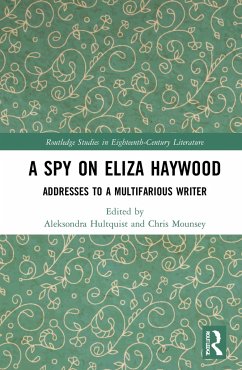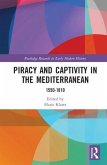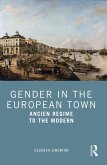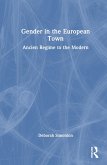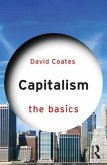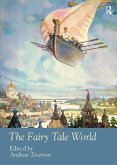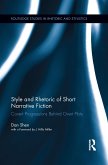Eliza Haywood was one of the most prolific English writers in the Age of the Enlightenment. Her career, from Love in Excess (1719) to her last completed project The Invisible Spy (1755) spanned the gamut of genres: novels, plays, advice manuals, periodicals, propaganda, satire, and translations. Haywood's importance in the development of the novel is now well-known.
A Spy on Eliza Haywood links this with her work in the other genres in which she published at least one volume a year throughout her life, demonstrating how she contributed substantially to making women's writing a locus of debate that had to be taken seriously by contemporary readers, as well as now by current scholars of political, moral, and social enquiries into the eighteenth century.
Haywood's work is essential to the study of eighteenth-century literature and this collection of essays continues the growing scholarship on this most important of women writers.
A Spy on Eliza Haywood links this with her work in the other genres in which she published at least one volume a year throughout her life, demonstrating how she contributed substantially to making women's writing a locus of debate that had to be taken seriously by contemporary readers, as well as now by current scholars of political, moral, and social enquiries into the eighteenth century.
Haywood's work is essential to the study of eighteenth-century literature and this collection of essays continues the growing scholarship on this most important of women writers.

